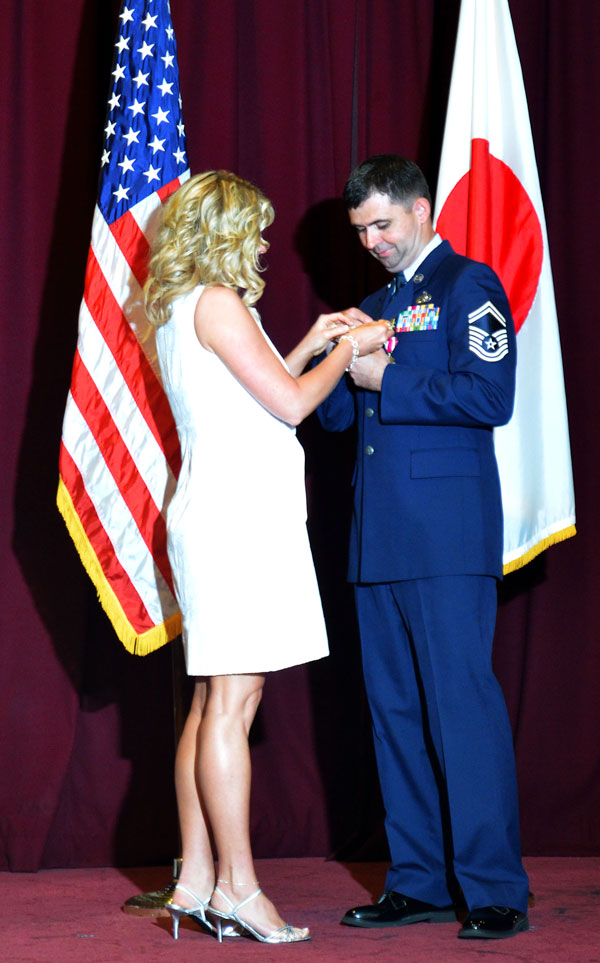Author: Vivian Cumins
I became a military spouse when I was only 19 years old. I remember feeling both nervous and excited the day we gave our lives to Uncle Sam. I say “our” lives because a military lifestyle affects the entire family, which is something the Air Force recruiter failed to mention during his sales pitch. Instead, he boasted how the Air Force was going to take great care of us. The service, he said, would pay for college, give us a housing allowance, provide free medical and dental, and fit the bill for worldwide travel.
 All true. Every bit of it. He had us eating out of the palm of his hand in minutes. Looking back now, I suspect his failure to highlight the challenges we would face—I would face—was more intentional than accidental. After all, he was a recruiter with monthly quotas to meet.
All true. Every bit of it. He had us eating out of the palm of his hand in minutes. Looking back now, I suspect his failure to highlight the challenges we would face—I would face—was more intentional than accidental. After all, he was a recruiter with monthly quotas to meet.
Nevertheless, I embraced my new role, and, for 20 years, I proudly served as an Air Force spouse. Here are a handful of observations and lessons learned from my journey:
- When your spouse signs the dotted line to serve our country, the whole family begins a life of service before self. The needs of the country will come before yours.
- Finances are tight in the beginning. The resources offered to military families regarding financial planning are invaluable.
- Getting involved in a military spouse group ensures you are never alone, despite living away from home or in foreign lands.
- Family Readiness Centers are situated in every military branch to promote self-sufficiency, mission-readiness, and overall adaptation to the military lifestyle.
- The service member is on the clock 24/7. This means they will be late to evening meals; miss dance recitals and birthday parties; and frequently cancel date night. Expressing forgiveness and understanding toward the service member is honorable and appreciated.
- The first deployment is terrifying. No amount of preparation or briefings prepare you for the experience. Relying on faith and leaning on your military family, family, and friends helps you to get through it.
- Subsequent deployments are just as terrifying and never get easier—they simply provide additional tools to equip you for the next one.
- Practicing good OPSEC (operational security) during deployments keeps your service member and our country safe. This include being mindful of what is said to family members and what is posted in email and on social media regarding the deployed location.
- Every moment counts when your service member contacts you while deployed downrange. This is not the time to argue, complain, or fuss with your spouse. The reasons why this is so important go without saying.
- Never be afraid to ask others for help.
- Learning the customs and courtesies surrounding the National Anthem, Retreat, and Reveille—and adhering to them—is respectful and expected.
- A military spouse is considered a dependent, and their actions affect the service member. My husband was counseled many times regarding my speeding tickets on base and overdue library books!
- It is imperative to keep children’s routines as normal as possible while your service member is gone.
- Kids are resilient and typically bounce back quickly; however, changing schools, friends, and scenery every two to four years is not easy for them. Seeking resources to assist with the moves will help them cope.
- Having the conversation about funeral arrangements, living wills, and military death benefits stinks but is necessary.
- Taking care of yourself benefits not only you but those you care about as well. Nurturing your spiritual well-being and ensuring you eat nutritious foods, drink plenty of water, get some exercise, and sleep at least eight hours will give you strength to be present for others.
- Allow time for transition after a deployment. Patience, understanding, communication, and prayer go a long way toward helping you settle back into your normal routine.
- Flexibility is paramount. Nothing goes as planned—ever, but the sacrifices are worth it.
- Not everyone gets to travel the world on Uncle Sam’s dime. Making the most out of every assignment ensures you have a great military experience.
- Purchasing a few formal outfits to have on hand for formal dinners, dining-ins, and military balls saves you the trouble of last-minute shopping. Nowadays, there are places you can rent formal attire for such occasions. Check Rent the Runway, an online service that provides designer dresses and accessory rentals.
- People who are not military will not understand anything about the lifestyle. Leaning on your new military family for support will help you avoid frustration and disappointment.
- Once a military spouse, always a military spouse. Sharing stories, becoming a mentor, writing a blog, and donating time or resources are ways to keep serving long after retirement.
God bless our current, separated, and retired service members … and a special thank-you to those who bravely love, honor, and support them—my sister and brother, you rock!


 Vivian is a storyteller and writer from small-town Oklahoma who loves bringing joy and laughter to others through the gift of memory-sharing.
Vivian is a storyteller and writer from small-town Oklahoma who loves bringing joy and laughter to others through the gift of memory-sharing. 
Viv,
You know that I feel this post deep in my soul! Being a military spouse has given me more pride than anything in this world, aside from my children. I have learned so much about life since I became a military spouse. My children have “aunts” and “uncles” all over the world. We all have friends all over the world. It is a life that I love. When it’s over in 5.5 years I know that I will feel a loss in my life. It will be a loss that I literally grieve. I don’t really know how to live without my military spouse and soldier friends. Keith joining the Army at 30 years old was tough. Uprooting my family at that time in our lives was the hardest thing I thought I would ever have to do. But I soon realized that it wasn’t so much “uprooting”. It was more like replantation. Every time we moved we planted new roots. We grew stronger and taller with each move. Not only have we survived each move, we have thrived with each move. I wouldn’t change it for anything. I love being a military spouse and being a military family. Now seeing my children become military service members to follow in their fathers footsteps, I’m even more proud! I didn’t think I could ever feel this much pride in my soul. Thank you for this post. Thank you for your service as a military spouse.
Thank you, your spouse, and your children for your service to our country! I love your analogy about growing new roots with each move. Military families are some of the strongest people. Thank you for sharing!